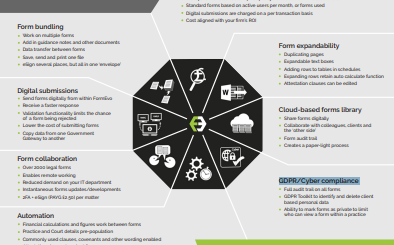Back to Basics for Lawyers: Have you made your New Year Resolutions?

Over four thousand years ago, the Babylonians celebrated New Year’s Day — although their celebration was in March rather than in January, coinciding with the spring planting of crops.
The New Year, no matter when people have celebrated it, has always been a time for looking back to the past, and more importantly, forward to the coming year. It’s a time to reflect on the changes we want, or often need, to make if we’re to have the motivation to move forward. Resolutions are a reflection of the Babylonians’ belief that what a person does right at the beginning of the New Year will have an effect throughout the entire year.
If you do nothing else in January, take a little time out to reflect on the past 12 months. It’s been tough out there for lawyers in the last couple of years. 2012 is likely to be no less challenging.
When you’ve done that, start setting down your objectives for the current year. By failing to review where you are now and where you want to go in the next 12 months you are doing yourself and your firm a huge disservice.
Any objective setting session needs to be based on some sort of realism. If it’s not, it will be demotivating and troublesome. In this edition of Back to Basics, we will look at setting some realistic objectives for the current year. Based on your own situation, you will be able to gauge whether what you set out to achieve is, in fact, realistic.
As always with any objective setting activity, you need to adopt a SMART approach. Are you up to the challenge?
Setting your objectives
90% of the population do not have any set objectives – you could say that if they don’t know where they’re going, they’ll probably end up somewhere they shouldn’t have.! This is equally true in business. When people first start out in business, they usually have a clear idea of what they want to do, when and how they want to do it and why they want to do it. Over time, however, these reasons become blurred and people end up doing what they’ve been doing day after day, week after week, month after month and year after year – out of habit and without stopping to consider why they started out in the first place.
In January you should take some time out to re-set your objectives – if you spend all your time working on specific cases for clients, you are doing yourself no favours if you fail to set aside the time look after your own business. Every individual in the firm as well as the firm itself should have and regularly review their objectives. This will help them to work out if they are going forward towards those objectives or backwards away from them.
Objective setting is a very powerful tool and should be used by every firm as well as every individual in the firm.
Test your current objectives — set out what you believe your business objectives are — and don’t be surprised if you don’t actually know what they are or that you don’t actually have any specific objectives. This is not unusual. Whether you have any current objectives or not, it is vital that you set down some for the next 12 months.
You MUST write your objectives down.
You might want to use an objective setting tool to help you to create your objectives. This will help you to check that your objectives are SMART (Specific, Measurable, Attainable, Realistic and Time Bound). You should then clearly communicate your objectives to those who will be involved in helping you to achieve them.
Check that your objectives do not conflict with one another or with any personal objectives you may have. Once your objectives have been developed you should look at your objectives every day, every week and every month until they are achieved.
Finally, set frequent and regular dates in your Calendar or Diary to review your objectives and measure your progress against them. Don’t worry if it all seems a bit haphazard at first, you can “tweak” it as you go. The important thing is to take action NOW — don’t leave it till later as you will find other less important things to take up your time.
You now have the basics. Take action now. You can always move on to more sophisticated models over time.
Brian O’Neill LL.B MBA
Business Consultant
t. 01294 833220








1 Response
[…] 2011 Posted in Managing a Law Firm No Comments TweetI have to commend Brian for starting his recent Business Briefing with the key business message that everyone needs to hear at this time of the year. It’s […]